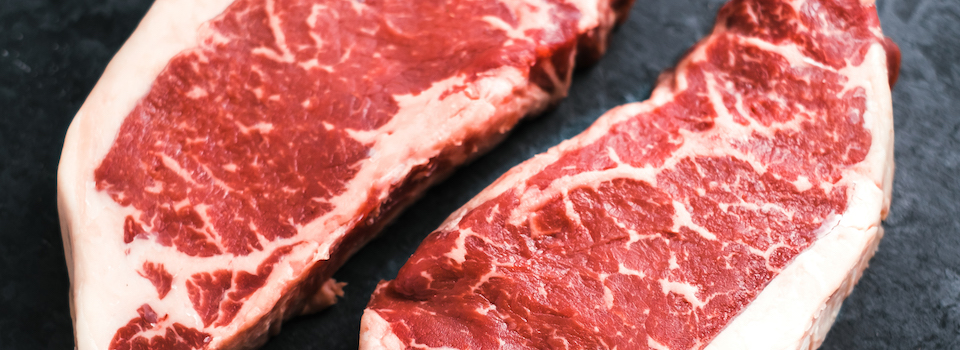
Kansas State University graduate student Sara Hene says that people who come from more rural areas and spend a lot of time outdoors have a greater risk of developing a red meat allergy.
K-State Cattlemen’s Day: More alpha-gal seen in striploins cooked to greater doneness
K-State graduate student explains cooking’s relationship with alpha-gal content in meat
At a glance: Kansas State University graduate student Sara Hene shares the results of a study titled, “Influence of Degree of Doneness on the Alpha Gal Content of Striploins and its Relationship with Red Meat Allergy.”
More information: Sara Hene, srhene@k-state.edu
Related: K-State Cattlemen's Day Reports
Feb. 18, 2025
By Jacob Klaudt, K-State Research and Extension news service
MANHATTAN, Kan. – Kansas State University graduate student Sara Hene and her team have conducted some of the first meat-science-based research into alpha-gal syndrome and found that increasing the degree of doneness heightens the alpha-gal concentration in striploins – one of the most commonly consumed beef cuts.
Humans can develop an allergy to a carbohydrate found in red meat products known as alpha-gal, which uses the Lone Star Tick as a primary vector. Alpha-gal was discovered in 2003 and sometimes elicits fatal allergic reactions upon consuming beef, pork or lamb.
“It was an interesting result,” she said. “The purpose of this study was to see if cooking impacts alpha-gal content, so we calculated it on a per protein basis – which is important considering the results – and found that as you increase the degree of doneness, the alpha-gal concentration increases.”
One of the possible reasons for Hene's findings involves potential muscle fiber shrinkage during the cooking process.
“As a result, they lose a lot of water, and some proteins in the muscle fibers are water soluble, so along with that water leaving in the form of purge (water loss due to gravity), there’s also some loss on a protein basis.”
She added: “Because we calculated alpha-gal concentration on a per protein basis, we just have a more concentrated sample.”
K-State researchers are conducting this study as part of a larger project to understand the alpha-gal content of various kinds of protein and the prevalence of alpha-gal syndrome throughout Kansas.
“There’s a lot of variability with alpha-gal syndrome, which makes it hard to diagnose,” Hene said. “It also makes it difficult to research because people have different responses to each red meat product, and the severity of the responses can vary.”
“Some people get hives, some get itchy, and for up to 60% of patients, it looks like they can experience potentially fatal anaphylaxis.”
While Hene hopes this study serves as a reference point for future research, she also looks to establish a baseline for the amount of alpha-gal contained in various red meats.
“We don't understand how much alpha-gal someone’s eating in a ham versus pieces of beef,” she said. “There has been this thought that it's constant among all products, and the results that we're seeing is that there are species differences and cooking methodology differences amongst other factors.”
Hene’s main goal for the study revolves around improving the diagnosis process and treatment of patients impacted by alpha-gal syndrome.
“It’s important they have a baseline level of how much alpha-gal they're consuming and that we as researchers understand the variation between different products,” she said. “In the future, we’d like to create a database full of commonly consumed food and pharmaceutical products of animal origin, so people have a reference.”
Hene's results will be included in the annual research report for K-State’s 112th annual Cattlemen’s Day, set for Mar. 7 at the National Guard Armory in Manhattan.
Registration costs $25 for those who register by Feb. 21 at noon, or $35 on the day of the event. There is no charge for students who pre-register. Registration is available online.
***

K‑State Research and Extension is a short name for the Kansas State University Agricultural Experiment Station and Cooperative Extension Service, a program designed to generate and distribute useful knowledge for the well‑being of Kansans. Supported by county, state, federal and private funds, the program has county extension offices, experiment fields, area extension offices and regional research centers statewide. Its headquarters is on the K‑State campus in Manhattan. For more information, visit www.ksre.ksu.edu. K-State Research and Extension is an equal opportunity provider and employer.